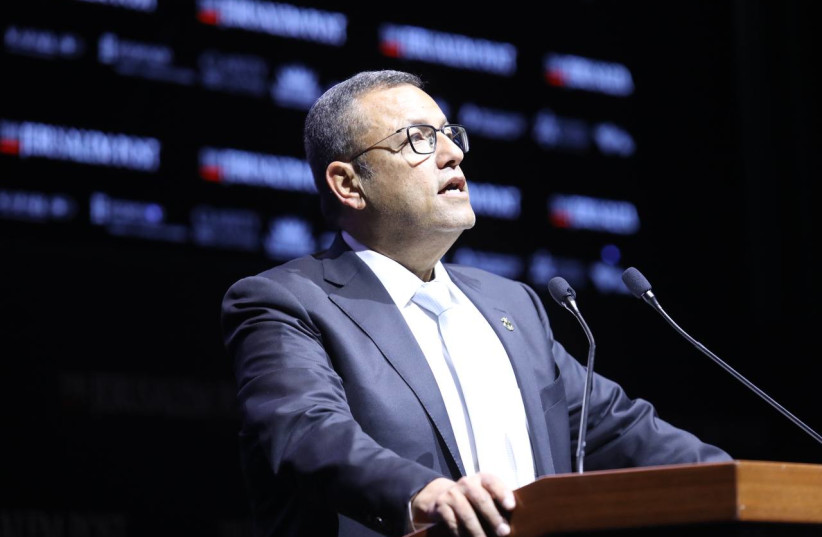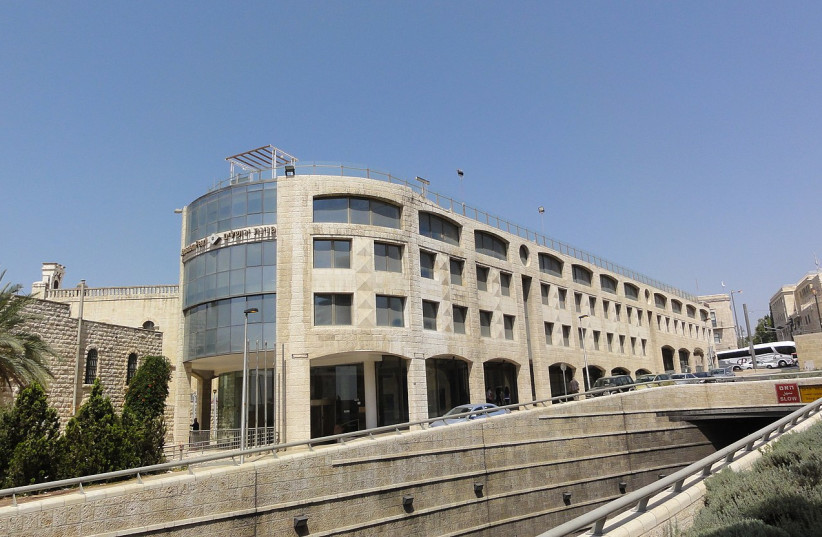Who owns the city
Mayor Moshe Lion is adamant about stopping the original plan led by the Israel Land Authority for Reches Lavan (White Ridge) and Lifta. While the ILA has mapped out a large construction project in both locations, Lion has decided to minimize the construction in order to preserve the nature.
Earlier this week, things reached a boiling point, as Lion and his staff stood up and walked out of a joint meeting with ILA CEO Yaakov Quint on the matter. Quint requested that the plan for Reches Lavan be submitted as originally planned to the District Planning Committee, but Lion refused.
Interestingly, the project was not on the meeting’s agenda, and it was Quint who brought it to be debated. This is not the first time that the Israel Land Administration insisted on promoting construction plans in the city even when the city council and mayor oppose these plans – such as when mayor Nir Barkat opposed the Lifta plans.
Leon has announced that he intends to continue promoting his program.

Whose school is it?
Haredi city council members are trying to thwart the expansion of a secular school in Kiryat Yovel, parents complain, pledging to fight to stop that from happening. A municipal plan to expand the Argentina School has been put on hold following the haredi protests by haredi representatives.
Local council Yuvalim is standing behind the parents, declaring that the needs of the haredi population will not come at the expense of the school.
About a month ago, the Planning and Building Committee held a discussion prior to the approval of the project, but while the municipality's official position was to approve the plan, the number of observant families who have moved to Kiryat Yovel has skyrocketed and they have opposed the school’s expansion project and are also striving to take over the area, arguing that they’re suffering from a shortage of classes.
Committee chairman Eliezer Rauchberger and Shas representatives did not show up, and the committee members approved only part of the plan, postponing other votes to the next meeting, for which no date has been set.
This all happened in the same week Yuvalim unanimously approved the Common Good action plan to promote coexistence and improve communal life in the neighborhood. The plan has three key points, which have been in dispute in recent months between the various sectors. The first being that the municipality immediately promotes the Argentina School expansion plan. The second issue, which everyone has agreed to, is promoting activities for all the populations belonging to the administration – secular, National-Religious and ultra-Orthodox – in accordance with their lifestyles, on all days of the week. Perhaps the most significant and controversial step is the freezing of the plan to turn the Warburg complex into a vibrant cultural complex for the secular population.
Despite the unanimous vote, the program did not receive support from all residents, with some sending abusive messages and threats to the chairman of the community administration, Dor Yitzhak Levy. One wrote that “blood will be shed” and that Moshe Lion will not be mayor in the next term, “because there will be riots with casualties on both sides.” The Warburg plan includes a 500-seat culture house and auditorium, and spaces for the arts.
<br>Elections, third round
Tens of thousands of Jerusalemites went out to vote earlier this week for new local council boards in French Hill, Gilo, Ganim, Lev Ha’ir and Meitarim. Some 16,095 residents (24% voter turnout) voted on Tuesday in the five community administrations. After three rounds of voting, all 30 local councils in the city now have new boards. In Lev Ha’ir, 653 people voted (17% turnout); French Hill, 2,367 (32%); Gilo, 4,291 (18%); Ganim, 2,621 (21%); and Meitarim, 6,163 (33%).
Lion, who began his tenure at city council with the Local Councils and Community Centers portfolio, congratulated all the elected officials, who have won residents' trust to strengthen the cooperation between the residents, administrations and municipality.
<br>Cleaning the suspect
A sanitation worker from the city's east side continued to work as normal in west Jerusalem despite being arrested for, and later convicted of, security offenses. Workers in the department said they are highly concerned that the municipality and the department management failed to inform them of the court proceedings and provide them with more security, though it seems Safra Square was aware of the situation.
The sanitation worker went to jail on Thursday a week ago, but continued his work as usual until then, with his then-suspected involvement in security offenses already being revealed by the police in December. Despite the arrest, the man continued to work in the west of the city, and even after he had already been convicted and sentenced to actual imprisonment for aiding and abetting in an illegal arms deal – as no one in the city administration carried out a situational assessment or summoned him to a hearing.
<br>Feed my people
There has been a surge in demand for food baskets throughout Jerusalem leading up to Passover. Several charity organizations have reported an increase of about 20% from pre-pandemic levels in the demand for food baskets, as coronavirus restrictions and rising prices have hit some citizens hard. Although the unemployment rate has fallen, many residents have been unable to recover after experiencing severe economic hardship.
Organizations have been flooded with new inquiries, and despite the growing numbers of food baskets distributed, the demand is only growing. Lots of single-parent families, widows, orphans and poor families have called for help, and organizations issued urgent calls to donate more. The Welfare Ministry has increased the budget for food baskets, which now stands at NIS 45 million, an increase of about NIS 10m. compared to previous years.
Those wishing to contribute may do so via Chasdei Naomi, 1-800-677-777; and Meir Panim, *3556.

No more Pearl
The municipality has announced that the former Dan Pearl Hotel – which has laid desolate and empty for about two decades on a prime corner between the city center and the Old City, and constitutes a public hazard – has been approved for expedited demolition.
In February, the municipality appealed to the court and requested a demolition order based on it being an abandoned building as defined in the Planning and Building Act of the Local Planning Committee, which “allows demolition proceedings to be carried out in cases where a building constitutes a nuisance to the public and violates public order by virtue of its existence illegally.” The petition, filed by attorneys Haim Nargasi and Yossi Hassidim of the municipal prosecutor’s office, said a demolition order would be issued to prevent the perpetuation of a structure that has been abandoned for many years and neglected for decades, deviating from its permit and plans.
<br>Hi-tech city
The government recently approved a municipal project to establish two innovation and technology districts in Jerusalem, including, for the first time, a hi-tech complex on the east side. As part of the efforts of the Jerusalem and heritage and innovation ministers to promote hi-tech in the capital, the government approved on Sunday a decision to make the city a hi-tech hub, by building two innovation and technology districts – one in the west and the other in the east of the city. The decision includes the establishment of an inter-ministerial team, which will formulate a plan for the project that will include academic institutions, medical centers and employment centers. The team will submit its recommendations to the government within a year.
The innovation districts will strengthen the capital's hi-tech and biotech industries, which currently employ only about 7% of those employed in the industry. Moreover, for the first time, the government is turning east Jerusalem into a technological and innovative employment center, with the aim of creating a unified and high-quality urban space that connects the west to east, as well as integrates various populations in the industry, such as haredim and Arabs.
